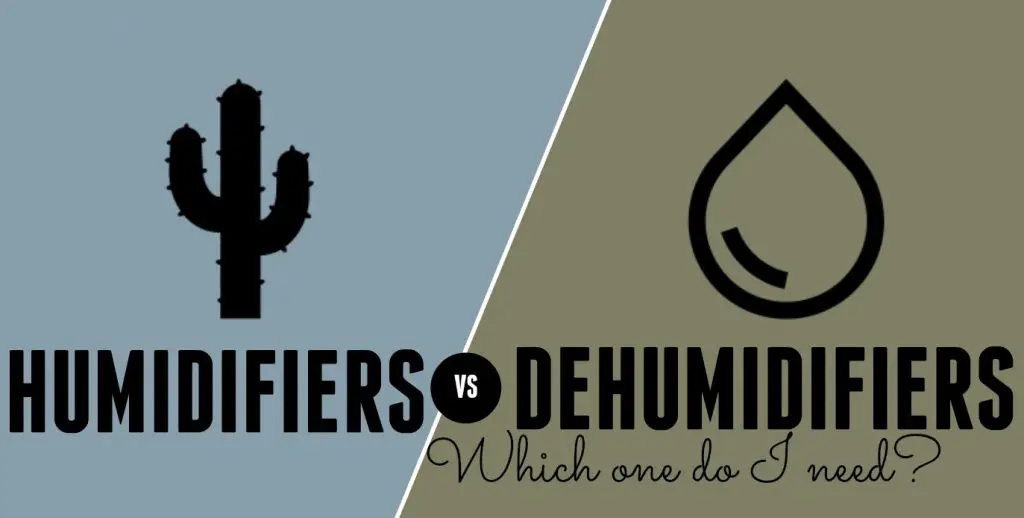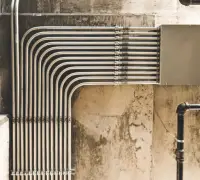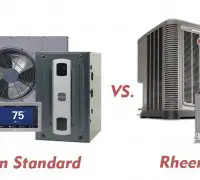Page Table of Contents
Which One Exactly Do You Need?
Whether you’re fighting allergies or not, one thing is clear: we all want and need fresher air in our homes. Despite of what one may think, the pollutants aren’t just outside, but inside our home too.
Using home devices that clear up the air or suck in moisture should be on your essential list next time you go shopping. Once you get there, you may find yourself in a pickle. Should you get an air purifier or a humidifier? Do you also need a dehumidifier?
Air purifier vs. humidifier vs. dehumidifier
When we take a look at air purifiers and dehumidifiers, we realize that they’re both made to reduce allergens in a room, making it more comfortable for anyone dealing with asthma and allergies.
In the case of an air purifier, the device circulates air through a filter, trapping air-born pollutants and irritants (smoke, dust, and pollen). The dehumidifier is good for reducing the humidity levels in the air as it sucks in moisture. This way, it’s able to kill mold and microbes that attract moisture.
Hepa filters are very dense filters capturing harmful particles like dust mites, pollen, and airborne particles that could exacerbate allergies. As a result, a HEPA filter dehumidifier can also help with allergy relief.
The air purifier is able to circulate air through a filter, eliminating the air borne pollutants, which a dehumidifier cannot do. Furthermore, the air purifier may reduce the risk for mold developing, removing the spores from the air. As it’s not able to control humidity in your home, chances are the mold is going to come back if there’s too much moisture. This why you should also use a dehumidifier as it’s the only device able to eliminate excessive moisture from your home. Even if it’s not going to clear or filter air, it’s still going to help eliminate specific allergens. A dehumidifier is going to keep dust mites and mold at bay as they thrive in humid environment. Once the humidity levels drop to more than 50%, most allergens are going to die.
On the other hand, humidifiers are designed to add water to indoor air, increasing the relative humidity of your home. For instance, during cold season, the dry air is going to lead to chapped skin or various respiratory issues. You may add moisture to the air with a humidifier, reducing the dryness of your skin and alleviating breathing problems. Once you add humidity to the indoor air is going to lower the static electricity and reduce the risk for your wooden furniture to crack.
In a nutshell, if you like a fresher air in your home, the air purifier is the best way to get it. Most unpleasant smells in a home are caused by pets, smokers or other factors and a good air purifier is going to eliminate the smells from your home. You should also use one if someone in your family is struggling with asthma or allergies, as some types or air purifiers are able to eliminate the allergens floating in the air.
When there’s too much moisture in your home, the dehumidifier is the best choice and it can work just fine along with an air purifier. If you want to add more moisture as the air is too dry, the humidifier is going to be the best new addition to your home.
Air purifier vs humidifier for the baby
When it comes to babies, we all know that they’re the most precious human beings in the world so keeping them safe and sound is fundamental for all of us. No matter which type of parent you are, we all have to agree that we’re thinking of their best interest. Using an air purifier or a humidifier is on that list, but does our baby really needs it? Does he needs both? Can you use both? Let’s take a closer look and see if we can get to a conclusion.
- Does your baby need an air purifier?
No matter the type of air purifier you’re deciding to go with, the main purpose is the same: filtering the air and giving you a fresher and healthier air. There are plenty of air pollutants out there that aren’t good for anyone, baby or not.
Many of the pollutants are difficult to avoid and quite common. You’re going to find particulate matter like dust in any home. The effects are pretty unpleasant: nausea, dizziness, sinuses and you want your baby away from that.
A good quality air purifier is going to be able to remove most of the small particles from the air and you should get one in your home. You should focus on removing pet dander (if you have any pet), dust and various irritants. If you’ve just renovated your home, get an air purifier that is better for removing gaseous pollutants.
If you’re really stressed out about the airborne irritants, you need to get an air purifier with a pre-filter and a HEPA filter too. The HEPA filters trap the small airborne allergens, the main cause for scratchy throats, itchy noses and headaches. Add an activated carbon filter if you’re also dealing with pervasive odor in your baby’s room.
- Should you also use a humidifier?
When it comes to the moisture level in a room, an air purifier has no ability whatsoever. If the humidity in your home is just fine, you shouldn’t worry about it all
However, when the humidity is too low (this is a common situation during the colder season), a humidifier is the best solution. Luckily for all of us, the air purifier isn’t able to remove any moisture from the air, so it’s never going to make the air dryer than it is.
A humidifier is going to add the moisture the nursery’s air really needs. When the humidity is too low, your baby may develop reactions similar to those caused by airborne particles. Get a digital hygrometer to check the air’s humidity in your home. A normal level should be ranging between 30% and 50%. Should it be lower than that, get a humidifier and pay attention to your baby. If the reactions don’t disappear, chances are you’re also going to need an air purifier.
- Can you use both in your baby’s nursery?
The air purifier works just fine along with a humidifier and either of them is going to reduce the performance of the other one. You can use them for cleaning the air and adding moisture to the nursery air.
Remember to take good care of them so they don’t lose their efficiency. Clean the humidifier on a regular basis and change the HEPA filters on the air purifier every six months or so.
Air purifier vs ionizer
Both air purifiers and ionizers are made to eliminate various contaminants from your house. The filtration air purifier simply uses a different air-cleaning technology than the one used by ionizer. Let’s see the details for a better understanding.
- How does a filtration air purifier work?
In the case of mechanical filtration purifiers, the air is passed through a filter material which is going to trap allergens and pollutants (smoke, animal dander, dust, pollen). The HEPA filters are able to remove no less than 99.97% of particles larger than 3 microns. When a filter isn’t true HEPA, it may still trap pet dander and dust, allowing smaller particles (pollen and spores) get through. There are air purifiers that also use an activated carbon filter which is removing some of the odors and gaseous pollutants.
- Are ionizers different in any way?
Ionizers are going to release negatively charged ions into the air and they’re going to share the charge to pollutant particles. Soon enough the particles are going to stick to each other/to various objects in the room, settling out of the air.
Ionizers are efficient for removing small particles (bacteria is one good example) from the air, but they’re not as effective as mechanical filters when it comes to trapping larger particles (dust, dander). This is why ionizers aren’t the best option for anyone struggling with allergies or asthma.
- What are their limitations?
Air purifiers are good for eliminating air borne contaminants and the models based on mechanical filter/electrostatic precipitators are going to purify the air that passes through the unit. Some of the allergens and pollutants are going to settle out of the air and onto the surfaces in the house, thus avoiding the purifier and remaining in the room.
In addition, ionizers and electrostatic purifiers produce ozone which irritates the lungs and aggravates the symptoms in asthma and other respiratory conditions.
Ionic air purifier vs Hepa air purifiers
Even though the both devices clean the air from impurities, they do use different methods for clearing out the air. The more you know about each of them, the easier is going to be for you to decide which type of device you need for your home.
- No filter vs. filter
An ionizer is sending out electrically charged ions that attach to the impurities. Once they’re attached, the particles are going to be too heavy to still remain in the air so they’re going to fall onto the floor. Some ionizers come with a collection plate so the particles are going to be attracted to it. You’re going to have to clean the plate later on.
The HEPA air purifier is going to suck air into it, through a very fine and dense physical filter which is able to trap airborne contaminants. The device is giving back fresher air into the room. When it’s on, the device is going to constantly repeat the whole process, eliminating contaminants from the house.
The HEPA air purifiers manage to actually trap the airborne contaminants, which is something that ionizer simply cannot do. In addition, in the case of the ionizer, the particles may be kicked back up into the air as you’re walking through the room. It’s a never-ending cycle of impurities that are removed from the air, coming back later on. The collection plates may help, but they’re not making ionizer perfect.
- Design and style options
Unfortunately, when it comes to design and style options, the ionizers definitely lose the fight. Most of the models out there are vertical units and thin, which makes them easy to place in corners. There are also compact, small and square which are even easier to place.
Ionizers do have a modern appearance and even futuristic at times. They’re made to sit on the ground/table so finding a wall mountable model is pretty much impossible.
On the other hand, HEPA air purifiers come in various shapes and sizes. Finding a model that matches the décor of your room is not challenging at all and you may also go with a wall mountable model.
The variety of colors and styles is another winning point for the HEPA air purifiers. It’s never going to be difficult to find one that doesn’t just do what you need, but also looks the way you like. This is something you’re not going to get from an ionizers and you should settle with the functionality, most of the time.
- The coverage area
The big downside for the air purifiers that use HEPA filter is the area that they can cover, which is smaller than the one of ionizer. Even the largest air purifier with HEPA filter isn’t going to be able to cover a large business space.
A regular ionizer is able to purify an air space up to 3,500sq.ft., which is huge. No air purifier with HEPA filter is going to be able to cover that kind of space completely on its own.
- The costs
What you pay is what you get and you do need to open up your wallet when getting a HEPA air purifier. Having said that, most HEPA air purifiers out there are more expensive than most ionizers.
Even the cheapest HEPA air purifier is going to cost three times more than a regular ionizer. Make sure that the HEPA air purifier is what your home really needs.
As if the initial cost wasn’t enough of a spending, taking care of a HEPA device is going to cost you more too. As it uses a physical filter, you’re going to have to replace it on a regular basis, so that it doesn’t lose its efficiency.
Apart from the models that come with a collection plate, ionizers don’t need a physical filter so the maintenance costs are really low. Even in the case of models with collection plates, you’re still going to pay less as the plates are washable and reusable.
- In conclusion
Make sure you give a good thought about your needs and take a look at your wallet as well. It’s not all the time that you definitely need a HEPA air purifier in your home, so give it a thorough thought. If no one in your family is having allergic reactions or asthma, an ionizer may keep the air in your home healthy and clean enough. At the same time, don’t hesitate to spend the extra buck for the HEPA air purifier when the health of your loved ones is at stake.






